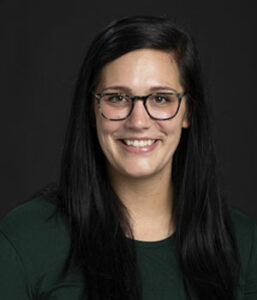Social Work MSW / Criminal Justice and Criminology MS MSW, MS
The goal of the MSW and criminal justice master’s program is to make an evidence-based social work practice curriculum available to Master of Science in Criminal Justice and Criminology students. Our program is highly complementary to criminal justice inquiry and study.
This coordinated program combines the strengths of two graduate programs and provides students with theoretical and practical exposure to evolving professional practice in the field of criminal justice and criminology or social work with a focus on criminal justice.
The program aims at developing the requisite knowledge base and skills needed for effective practice with individuals, families, groups, organizations and communities involved in the criminal justice system.
Program Type
Master’s
Program Format
On Campus
Admission requirements are consistent with those specified by the UWM Graduate School, the MS in Criminal Justice and Criminology and the Master of Social Work (MSW) program in the Helen Bader School of Social Welfare.
Students with a Bachelor of Social Work (BSW) from within the past seven years from a CSWE-accredited social work program are exempted from the 22 credits of foundation coursework.
The coordinated Master of Social Work and criminal justice master’s program includes 33 credits in criminal justice and criminology and 34 in social work.
The total credits for the coordinated Master of Social Work and MS in Criminal Justice & Criminology coordinated program would typically be completed in both programs at the same time, rather than one program after the other. Degrees will be awarded simultaneously. A student who doesn’t complete the requirements for the coordinated degree program would need to complete all requirements for an individual program in order to receive a degree.
| Coordinated with Foundation Curriculum | Credits |
|---|---|
| Foundation Curriculum | 22 |
| Advanced Curriculum | 28* |
| Criminal Justice Curriculum | 33 |
| Total | 83 |
| Coordinated with Advanced Curriculum | Credits |
|---|---|
| Advanced Curriculum | 28* |
| Criminal Justice Curriculum | 33 |
| Total | 61 |
The Master of Social Work (MSW) component includes 56 credits of MSW courses. This consists of 22 credits in the foundation curriculum and 34 in the advanced curriculum.
Students with a Bachelor’s Degree in Social Work (BSW) within the past seven years are required to complete the 34 credits in the advanced curriculum. Students without a BSW are required to complete the 56 credits in both the foundation and the advanced curriculum.
| Course Type | Credits |
|---|---|
| Foundation Curriculum | 22 |
| Advanced Curriculum | 34 |
| Total | 56 |
Social Work without a BSW (Foundation)
| Course | Credits |
|---|---|
| SOC WRK 604: Social Systems and Social Work | 3 |
| SOC WRK 662: Social Welfare Research Methods | 3 |
| SOC WRK 665: Cultural Diversity & Social Work | 3 |
| SOC WRK 705: Individual Behavior & Social Welfare | 3 |
| SOC WRK 750: Social Welfare Policy Development and Implementation | 2 |
| SOC WRK 708: Social Work Methods I | 3 |
| SOC WRK 709: Social Work Methods II | 2 |
| SOC WRK 721: Foundation Field Instruction | 3 |
| SOC WRK 711: Direct Practice I | 3 |
| SOC WRK 712: Advanced Practice and Leadership in Organizations | 3 |
| SOC WRK 795: Evaluation of Practice and Programs | 3 |
| SOC WRK 851: Social Issues and Policy Analysis | 3 |
| SOC WRK 721, 821, 822: Graduate Field Education | 9 |
| Social Work Electives | 7 |
| Shared electives with Criminal Justice & Criminology* | 6 |
| Total | 56 |
Social Work with a BSW (Advanced)
| Course | Credits |
|---|---|
| SOC WRK 711: Direct Practice I | 3 |
| SOC WRK 712: Advanced Practice and Leadership in Organizations and Communities | 3 |
| SOC WRK 722, 821, 822: Graduate Field Instruction | 9 |
| SOC WRK 795: Evaluation of Practice and Programs | 3 |
| SOC WRK 851: Social Issues and Policy Analysis | 3 |
| Social Work Electives | 7 |
| Shared electives with Criminal Justice & Criminology* | 6 |
| Total | 34 |
Criminal Justice & Criminology
| Course | Credits |
|---|---|
| CRM JST 773: Perspectives on Crime & the Criminal Justice System | 3 |
| CRM JST 743: Administration of Criminal Justice Systems | 3 |
| CRM JST 756: Analysis of Criminal Justice Research | 3 |
| CRM JST 713: Measuring and Analyzing Crime Data | 3 |
| CRM JST 920: Capstone | 3 |
| Criminal Justice & Criminology electives | 12 |
| Shared electives with Social Work* | 6 |
| Total | 33 |
Field Courses
Foundation students without a BSW earned within the past seven years are required to complete four semesters of field placement. Foundation students will complete two consecutive semesters of field at two separate field sites, for a total of four semesters.
| Course | Credits |
|---|---|
| SOC WRK 721: Field Instruction I* | 3 |
| SOC WRK 722: Field Instruction II | 3 |
| SOC WRK 821: Field Instruction III | 3 |
| SOC WRK 822: Field Instruction IV | 3 |
| Total | 12 |
Electives
| Course | Credits |
|---|---|
| Social Work electives | 7 |
| Selected from among successfully completed criminal justice courses in consultation with faculty advisor | 6 |
| Total | 13 |
Social Work
| Course | Credits |
|---|---|
| SOC WRK 562G: Child and Family Services | 2 |
| SOC WRK 564G: Social Services for the Aging | 3 |
| SOC WRK 630G: Families and Poverty | 3 |
| SOC WRK 680G: Death and Dying | 3 |
| SOC WRK 685G: Social Gerontology | 3 |
| SOC WRK 690G: Mindfulness and Community Building | 3 |
| SOC WRK 753: Adult Psychopathology | 3 |
| SOC WRK 754: Child and Adolescent Psychopathology | 2 |
| SOC WRK 771: Development of Family Over the Lifespan | 3 |
| SOC WRK 774: Trauma Counseling I | 3 |
| SOC WRK 775: Trauma Counseling II | 3 |
| SOC WRK 791: Current Topics, subtopics: AODA, LGBTQIA+, Technology in Social Work, Institutional Racism in School Social Work, Exceptional Individuals in School Social Work | 3 |
| SOC WRK 811: Direct Practice II, subtopics: Behavioral and Mental Health, Child and Family, Health, Aging | 3 |
| SOC WRK 818: Treatment of Co-Occurring Disorders | 3 |
| SOC WRK 820: Seminar in Social Work Practice, subtopics: Working with Violent and Traumatized Individuals and Families, Motivational Interviewing, Treatment of Substance Misuse and the Family (Adult or Adolescent) | 2 |
| SOC WRK 855: Practice Skills and Concepts for Aging and Health | 3 |
Criminal Justice & Criminology
| Course | Credits |
|---|---|
| CRM JST 421G: Cyber Crime | 3 |
| CRM JST 422G: Cyber Crime, Law & Policy | 3 |
| CRM JST 423G: Investigating the Dark Web | 3 |
| CRM JST 424G: Sex Crimes, Human Trafficking and the Internet | 3 |
| CRM JST 480G: Criminal Evidence & Investigation | 3 |
| CRM JST 490G: Drugs, Crime & Criminal Justice | 3 |
| CRM JST 520G: Analysis Oriented Technology: Spatial Data Analysis; Crime Mapping; ArcGIS | 3 |
| CRM JST 671: Juvenile Justice | 2 |
| CRM JST 680G: Jails | 3 |
| CRM JST 775: Race, Crime & Criminal Justice | 3 |
| CRM JST 795: Issues in Law Enforcement Practice & Policy | 3 |
| CRM JST 830: Intervention Strategies for Correctional Clients | 3 |
| CRM JST 840: Philosophical Foundations of Policing | 3 |
| CRM JST 850: Issues in Correctional Practice & Policy | 3 |
| CRM JST 970: Special Topics, varies by semester, past include: Women & Criminal Justice, Violence & Criminal Justice System | 3 |
- Assistant Professor, Criminal Justice & Criminology
- Graduate Program Coordinator, Criminal Justice & Criminology
- asheeran@uwm.edu
- 414-251-8687
- Enderis Hall 1135



